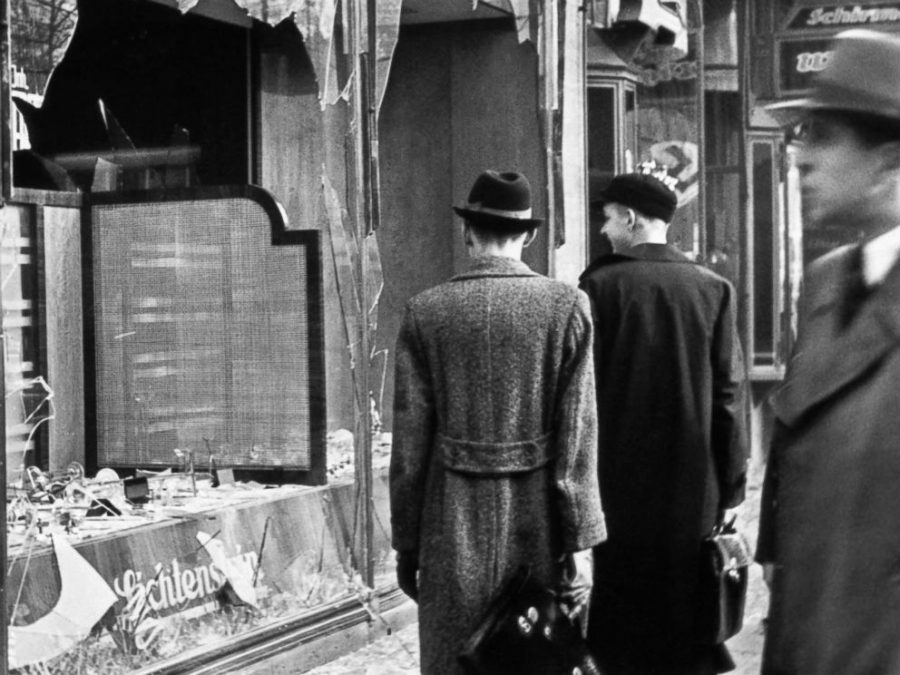Kristallnacht Speakers
November 9th, 1938 is widely known as Kristallnacht, the Night of Broken Glass. On this day, Hitler used the desperate action of a Jewish teenager to justify an anti-Jewish campaign; hundreds of synagogues were burnt, Jewish businesses and homes were looted, and approximately 100 Jews were killed.
Ramaz commemorates Kristallnacht every year with assemblies and speakers. This year, the sophomores and juniors heard from Ms. Landau, a Ramaz math teacher whose grandfather told her about Kristallnacht, and Mrs. Zimbler, who experienced it herself.
Ms. Landau opened the assembly by telling the story of her grandfather. She discussed how her great-grandfather had been a decorated World War I veteran and how this protected the family during the chaos of Kristallnacht. Her grandfather managed to escape to Palestine after Kristallnacht, but his three sisters and parents died in Auschwitz. He wrote an autobiography about his experiences.
Mrs. Zimbler gave a moving account of her experiences. She lived in an apartment building right next to her synagogue and was not allowed to go to public school because she was Jewish.
When Kristallnacht occurred, Mrs. Zimbler was only 10 years old. Her parents sent her and her brother to her great aunt’s house in the suburbs, but she was not safe from the Nazis there either. A Nazi official came and kicked Mrs. Zimbler and her great aunt out of the house, claiming that is was his house now.
When Mrs. Zimbler returned to the city, her synagogue was in flames. The firefighters stood by and watched, only intervening if German property was threatened. Forbidden from returning to her apartment, she stayed with friends until her parents returned.
Her father had been in Dachau for 36 hours before the Germans discovered he was a decoder, and that they could use him as such, and her mother had to move around the city.
They managed to get Mrs. Zimbler and her brother on the Kindertransport to Holland. The two of them stayed there until October 1939 when they managed to get to the United States. Their parents followed three weeks later, but it wasn’t until January 1940 that they could live together as a family.
After recounting her story, Mrs. Zimbler told the students that, “It’s in your hands to make the world better.” Ms. Benel furthered the statement by saying, “Be silent no more.”
Mrs. Zimbler speaks at the Museum of Jewish Heritage, because “you have to do something when you see an injustice done…when you were a kid—10 years old—it just goes into your bones and you never forget.”



